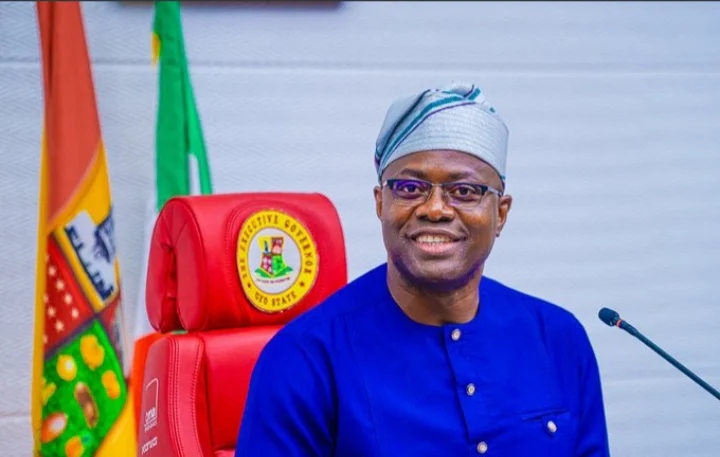A mechanic, Promise Tochukwu, aka Daddy, has been shot dead by a yet-to-be-identified policeman on Opaleye Bridge, around Okoya Street, in the Ifelodun Local Council Development Area of Lagos State.
The killer cop was said to have followed a security team to the area, which included military men of Operation MESA.
There are, however, two different versions of what led to the killing of the 17-year-old.
An eyewitness, who identified herself as Esther, claimed that a man brutalized his girlfriend during an argument that degenerated into a fight.
She noted that the security operatives, who were mobilized to the scene by the lady, shot the mechanic dead.
The resident noted that Promise was on his way home when he was hit by bullets fired by a policeman in the team.
She said, “The incident happened on Monday morning; I had gone to drop my children at school and was on my way to the shop to pick something when I saw a girl bleeding profusely close to the Opaleye Bridge. People said the girl’s boyfriend was responsible for her injuries and that she called security operatives to arrest him.
“When they got to the place, they took over the area; but the boyfriend was nowhere to be found. As I saw the soldiers and policemen, I stood back. But Promise, who was unaware of the situation, came out of the boundary area to connect to his grandma’s residence.
“As the operatives saw him, they asked him to stop. When they observed that he was moving back as if he wanted to run, they shot him. It was a policeman in the team that shot him on the bridge. I went to inform his family.”
A relative of the victim, Agnes, said Promise was taken to a traditional center where two bullets were extracted from his body.
She added that he died while being rushed to the Orege General Hospital for further treatment.
Agnes said, “I was at my mother’s place when Esther rushed in to inform us that Promise had been shot. I quickly stood up, rushed to the scene, and saw OP MESA operatives driving away. I was shocked as I saw Promise lying on the ground in a pool of blood. He kept shouting that his chest was paining him and I saw that his left leg had been hit.
“I stopped a vehicle and we rushed him to a man’s place where two bullets were extracted from his body. After the man was done, we were on our way to the Orege General Hospital for treatment when he died.
“The operatives were saying he was mistakenly shot, but we could not do a further investigation as we were all after saving his life till he died.”
However, a community leader, who spoke on condition of anonymity, claimed that Promise was shot by policemen detailed to arrest hoodlums involved in a street fight.
He explained that the fight had been ongoing for five days, adding that Promise was shot after a vigilante pointed at him.
He said, “The street fight involved hoodlums from Okoya, Ezeago and Ayetoro streets. The area boys were fighting over a girl and also because of the amount they usually collect at illegal tollgates in the areas.
“Policemen and vigilantes usually carry out regular raids and at times, they invite the OP MESA to support them. On that day, Promise was on his way home when one of the vigilantes fingered him to the police and he was shot in the leg.
“After shooting him, they abandoned him and left. He died after the attack, but the police and the vigilantes have denied shooting him. Luckily for the family, they have extracted the bullets. The case was reported at the Layeni Police Station.”
Promise’s mother, Bose, while demanding justice, said her son died after losing a lot of blood.
She urged the state government and the police to probe the circumstances surrounding the death.
“I was at home when my sister informed me that Promise was shot and I was asked to send money for his treatment. I sent N15,000, but a few minutes later, my sister informed me that he had died. I didn’t believe it at first until I heard from another person. He has been buried,” she added.
A picture of the corpse during internment was seen by our correspondent, who observed what appeared like a bullet hole in the deceased’s left leg.
The two bullets extracted from the body were also sighted by our correspondent.
When contacted, the state Police Public Relations Officer, CSP Adekunle Ajisebutu, said, “No policeman shot anybody to the best of my knowledge. We have yet to receive a report of the incident. However, we will investigate it accordingly and do the needful.”

 BIG STORY3 days ago
BIG STORY3 days ago
 BIG STORY2 days ago
BIG STORY2 days ago
 BIG STORY3 days ago
BIG STORY3 days ago
 BIG STORY5 days ago
BIG STORY5 days ago
 BIG STORY3 days ago
BIG STORY3 days ago
 BIG STORY2 days ago
BIG STORY2 days ago
 BIG STORY2 days ago
BIG STORY2 days ago
 BIG STORY2 days ago
BIG STORY2 days ago
























